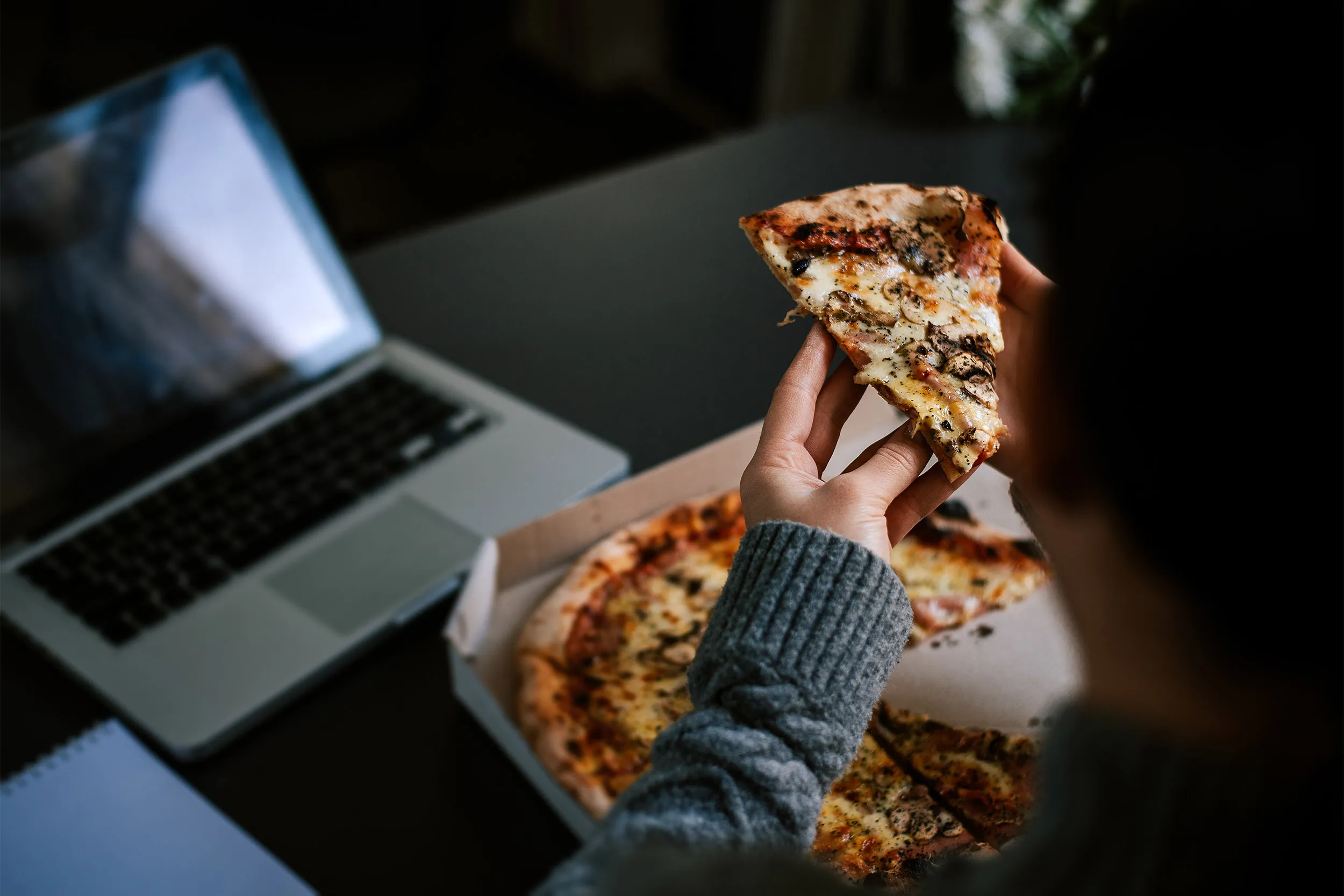In today’s fast-paced lifestyle, eating late has almost become routine. Many people work late hours, face long commutes, or simply prefer to have late-night dinners with their family. But nutritionists and doctors increasingly warn that regularly eating dinner after 8 pm could be quietly undermining your health from digestion to sleep, metabolism, and even heart function.
The Body’s Clock and Meal Timing
Our bodies run on an internal timekeeper known as the circadian rhythm, which regulates sleep, hormone production, and metabolism. This rhythm slows down after sunset, preparing the body for rest. When food is consumed late in the evening, it disrupts this natural cycle.
In simpler terms, when you eat late, your body burns fewer calories and stores more of them as fat.
Slower Metabolism and Weight Gain
Multiple studies have shown that eating late at night can slow down your metabolic rate. During the day, your body efficiently converts food into energy, but as night falls, this process becomes sluggish.
A 2023 study published in the Journal of Clinical Endocrinology & Metabolism found that participants who ate dinner at 10 pm burned 10% fewer calories overnight compared to those who ate at 6 pm. The late eaters also had higher levels of ghrelin, the “hunger hormone” making them more likely to overeat the next day.
This combination of slower calorie burning and increased hunger contributes significantly to gradual weight gain.
Digestive Troubles and Acid Reflux
When you eat a heavy meal and lie down soon afterward, gravity can no longer help your stomach digest food efficiently. This often leads to indigestion, bloating, or acid reflux especially if the meal contains spicy or fried items.
Gastroenterologist Dr. Mohit Jain explains, “Late-night eating doesn’t allow the digestive tract to function properly before sleep. Stomach acid can move upward, causing heartburn or chest discomfort.”
To prevent this, experts recommend leaving a gap of at least two to three hours between your last meal and bedtime.
Interrupted Sleep and Restlessness
Late dinners can also rob you of quality sleep. When your stomach is busy digesting food, your body finds it harder to relax and enter deep sleep. Moreover, high-sugar or high-fat meals can affect melatonin production, the hormone that signals your brain that it’s time to rest.
As a result, people who eat dinner late often wake up feeling tired, restless, or bloated. Chronic sleep disruption can then lead to irritability, low energy, and even weakened immunity.
Impact on Heart and Blood Sugar Levels
The timing of your dinner can also affect heart and metabolic health. Research shows that late-night eating increases the risk of high blood pressure, elevated cholesterol, and insulin resistance all of which are precursors to heart disease and type 2 diabetes.
When food is eaten late and the body remains inactive, sugar levels stay higher for longer, straining the pancreas and other organs. Over time, this can contribute to metabolic syndrome, a condition marked by excess fat around the abdomen and poor blood sugar control.
Hormonal Imbalance and Increased Cravings
Late eating throws off your body’s natural hunger hormones leptin (which signals fullness) and ghrelin (which triggers hunger). When you eat close to bedtime, these hormones become misaligned, leading to late-night cravings and irregular appetite patterns.
This hormonal confusion can cause people to consume more calories than they need, increasing the likelihood of obesity and mood fluctuations.
Healthier Alternatives
While skipping dinner is not recommended, making small adjustments can help minimise the negative effects of late meals. Nutrition experts suggest:
-
Eat dinner 2–3 hours before sleep to allow proper digestion.
-
Choose light, balanced meals such as soups, salads, or grilled vegetables.
-
Avoid caffeine, alcohol, and desserts late at night.
-
If you must eat late, go for protein-rich snacks like yogurt, boiled eggs, or a handful of nuts instead of heavy or oily food.
-
Try to maintain consistent meal timings, even on weekends.


